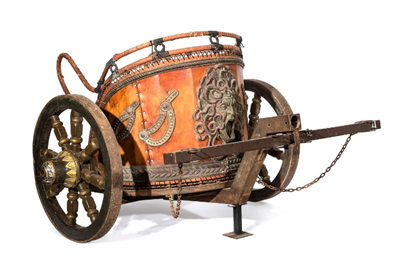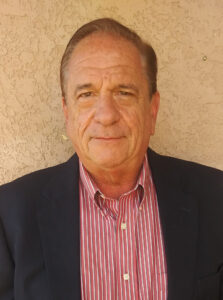Point to Ponder: Relapse is a process, not an event.
Recovery Wisdom: If you do what you’ve always done, you’re going to get what you’ve always got.
Important Verse: Make sure that the light that you think you have
is not really darkness. Luke 11:35

Slipping into Darkness
Anyone who hopes to conquer addiction would benefit by understanding the dynamics of relapse. One common misconception about relapse is that it happens without warning. In fact, relapse happens over time- it is a process, not an event and has many identifiable warning signs along the way. People in recovery who do not realize this often find themselves in an endless cycle of relapse and recovery. They do well for a while, appear serious about staying drug-free and say all the right things like “I’ve learned my lesson” and “I’m never going to use drugs again.” Then despite their promises and good intentions, they use drugs again. Friends, family, and the addict himself are baffled by the inability to leave it alone.
The Apostle Paul expressed a similar struggle, I don’t understand myself at all, for I really want to do what is right, but I don’t do it. Instead I do the very thing I hate.1 We can be somewhat consoled knowing that a disciple of Christ also struggled with his sinful nature. Of course, Paul was not upset because he sold his Roman chariot for crack. But the underlying principle of being overcome by an aspect of our carnal nature still applies. And the self-condemnation for doing the thing I hate is as devastating now as it was 2,000 years ago. To get a better understanding of what is going on, let’s look at the mindset that precedes a relapse.
Blind Spots
Driver education classes instruct students to glance over their right shoulder when changing lanes. There is a blind spot behind them that can’t be seen in the rearview mirror. If our student disregards this advice to “Check Your Blind Spot” he’s likely to have an accident. Perhaps not right away, but it’s the proverbial accident waiting to happen.
People who struggle with an addiction are often blind to a relapse as it unfolds. We know this because individuals who relapse often report that they did not see it coming. There seems to be a peculiar blind spot that puts addicts in harm’s way. We may never know why. However, knowing why there is a blind spot is not nearly as important as realizing that it is there and develop a plan to deal with it in a healthy way. The bible cautions us about dark corners and promises that If you are filled with light, with no dark corners, then your whole life will be radiant.2
If we want to have radiant recovery, the dark corners that often lead to drug use will have to be exposed. Recognize that your old addictive “self” operates in and is energized by the darkness. You may have a blind spot when it comes to relapse, but that doesn’t mean that you can’t see it coming. Just like the student driver, you have to know where to look. If you are a Christian who is determined to stop using drugs then you will need the support of another person to help you identify your particular blind spots. This could be your Pastor or a trusted member of your church, or even a family member as long as the person has your best interests at heart. It will take a thorough review of your thought life, particular behavior patterns and emotional terrain to identify exactly how you fall from grace. There is a pattern that is just below awareness. This is also where you can pray for insight and illumination, tap into the unseen power and vastness of the Christ consciousness.
Christian addicts who justify various behaviors by saying “It’s ok as long as I’m not using my drug of choice” fail to recognize that there is a spiritual and psychological cost to their behaviors. Make sure that the light you think you have is not really darkness.3 Someone who is drug-free but spending hours every night watching internet pornography could be in the relapse process. When this process goes unrecognized and unimpeded, the mind of an addict will eventually shift to the ‘GO’ State.
The ‘GO’ State
Dr. Anne Childress in her research on the brain chemistry of cocaine addiction has studied the critical moment when a recovering addict is overwhelmed by the desire or craving to use drugs. This is the point at which reason and good judgment are brushed aside. Dr. Childress has termed this the ‘GO’ state. It is characterized by physiological changes such as increased heart rate and respiration and changes in the blood flow of the brain. In anticipation of drug use, fMRI brain scans show that that addicts experience decreased activation in the prefrontal cortex (the decision-making part of the brain) and increased activation in the mesolimbic area (the seat of emotions).
As a result of these changes in brain activity, the mind of an addict shifts into a trance-like state. Thoughts of drug use increase dramatically. Although Childress studied this dynamic with respect to cocaine users, the mechanism is similar for any drugs that have addictive potential. Once a person reaches the ‘Go’ state all relapse indicators are set for a binge. Only an act of God and a team of wild horses could keep someone from using. I have heard of rare cases where a person turns away from drug use at the absolute last second. And I realize that God can operate at any time and in any place by providing an exit from temptation. I am reminded of the words of the Apostle Paul, …When you are tempted, he will show you a way out so that you will not give in to it.4 An example of God providing a way out would be if an old friend from High School runs into you while you are going to buy drugs. This might happen, but don’t count on it. It is foolish for someone to flirt with temptation by seeing how close they can come to drug use without using. And always remember God helps those who help themselves.
The further along someone goes in the relapse process the more difficult it becomes to ask for help. The common advice to “call someone when you feel like using” usually goes unheeded- even if the person does not want to use drugs again. For the same reason, the suggestion to “think it through”, is unlikely give the reduced functioning of the decision-making part of their brain. It’s as if their brains have been hijacked by an evil spirit!
Many Christians refer to addictive behavior as “the sinful nature” while a science-based approach would maintain that addiction is a disruption of the pleasure pathways of the brain. A medical perspective that aligns with traditional drug treatment would follow a disease model of addiction. Perhaps these varying definitions can co-exist if we believe that all things, including science and medicine, are of God.
Note: Many years ago, I was hired as a substance abuse counselor for a Christian mission in Florida. I was asked to alter my secular approach to make it compatible with a faith-based program. They knew that I was an expert in the dynamics of relapse, and that they had a big problem with their men relapsing. What they wanted was a Christian approach to Relapse Prevention, and that’s what I provided.
Bible References:
1) I don’t understand myself at all, for I really want to do what is right but I don’t do it. Instead I do the very thing I hate. Romans 7:15
2) If you are filled with light, with no dark corners, then your whole life will be radiant. Luke 11:36
3) Make sure that the light you think you have is not really darkness. Luke 11:35
4) When you are tempted, he will show you a way out so that you will not give in to it.1 Corinthians 10:13
5) Dr. Anna Rose Childress, PhD https://www.secondopinion-tv.org/panelist/anna-rose-childress-phd


